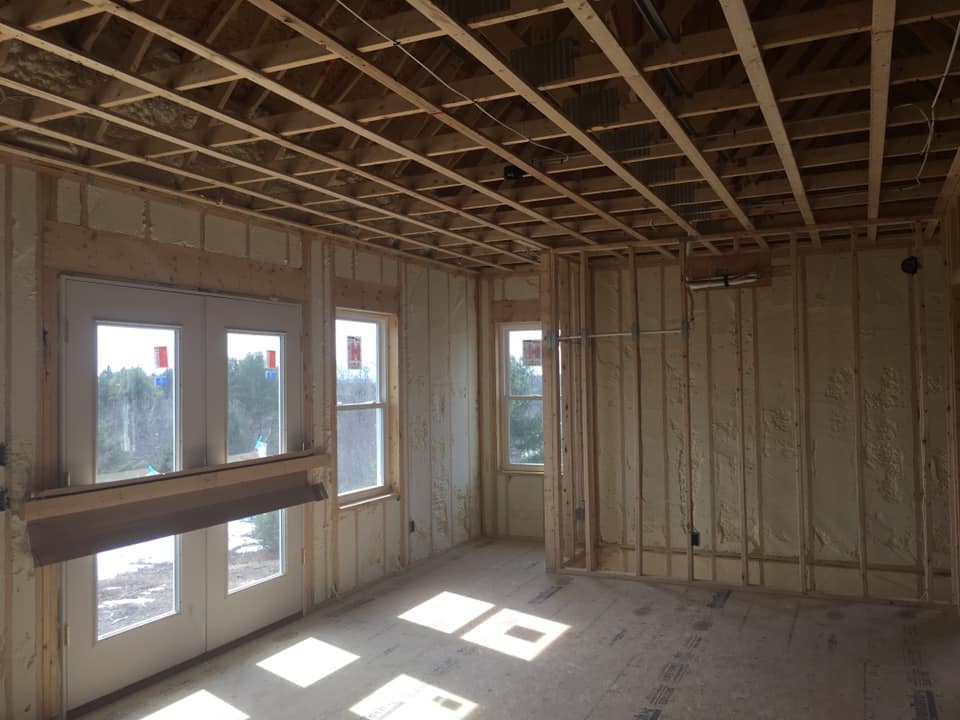Is Insulation Important for Your Home? Having an adequately protected home is essential for both comfort and power efficiency. Insulation not only helps keep your home warm in the winter but also keeps it cool during the summer months. It can help lower energy bills year-round by minimizing the heat lost or gained through walls and ceilings. However, many homeowners need to be made aware of how insulation works and why it is essential to have it in their homes.
Also read: house drawing for kids
What is Isolation?
Insulation is an essential but often overlooked aspect of home improvement. It is crucial in keeping homes comfortable and energy efficient all year, whatever the weather. Insulation is a material that slows or prevents heat transfer from one place to another. This means it can help keep warm and cool air inside during the winter and summer, reducing potential energy costs for homeowners.
The two most common types of insulation are loose fill and batting (blanket). Loose-fill insulation consists of cellulose, mineral wool, or fiberglass blown into walls or other cavities before being sealed with drywall or plastic sheeting. On the other hand, Batt insulation is made of fibers like fiberglass, mineral wool, and cotton that are cut into sheets that fit snugly between studs in walls, ceilings, and floors.
Insulation Benefits
Insulation is an integral part of your home’s overall energy efficiency. Installing insulation in the walls and ceiling of your home can help keep it cool in the summer and warm in the winter, resulting in lower energy bills. In addition to efficiency benefits, insulation also provides a variety of other advantages for homeowners.
Insulation helps lower noise from outside sources, such as gridlock or nearby construction sites. It also prevents air leakage that can lead to higher humidity levels and possible mold growth inside the home. Properly installed insulation is a barrier between interior spaces and the exterior elements, providing additional protection against extreme weather conditions, insects, pollen, dust mites, and even fire hazards.
The right type of insulation can also improve indoor air quality by helping to prevent pollutants from entering through gaps or cracks along walls or ceilings.
Insulation Cost
Is insulation important for your home? The answer is yes, and you must know how much it will cost. Depending on the size of your home and the type of insulation you choose, the costs can be high. Insulation can help reduce energy use in a home by keeping air conditioning inside during cold winters and hot summers.
Many factors must be considered when deciding what type of insulation to use and how much to install. The amount needed depends on climate variance and the current levels of energy efficiency in your home. It is recommended that homeowners seek an experienced contractor who can provide a detailed estimate of materials, labor costs, installation timelines, and any additional expenses that may arise during the process. Spray Foam Insulation St Paul offers you the best offer related to different types of insulation.
Maintenance Tips
When it comes to keeping your home comfortable, insulation is critical. Proper insulation can make life in your home much more enjoyable, from keeping warm air inside during the cold winter months to keeping out hot summer temperatures from creeping in. But there are other maintenance tips that you should also consider when caring for your home’s structure and environment.
Regularly check window seals and climate stripping around doors to stop drafts or water leaks. Also, look at the ceiling for signs of wear or damage; If caught early, minor problems can be fixed before they become significant problems. Also, keep an eye on pipes outdoors; If you notice corrosion or cracks, repair them immediately so they won’t freeze during the colder months.
Conclusion
Insulation is essential to any home, keeping homes warm in the winter and cool in the summer. It also helps keep energy bills low by trapping air inside the home’s walls, so less energy is required to maintain comfortable temperatures. Insulation’s benefits include increased comfort, soundproofing, improved indoor air quality, and reduced energy costs. Insulation should be at the top of the list for anyone considering upgrading their home or building a new one.
The cost of insulating a home often discourages potential homeowners from investing in such an essential item in their homes. However, looking at the long-term savings from lower energy bills and increased efficiency, it quickly becomes apparent that insulating your home can be worth its weight in gold.

